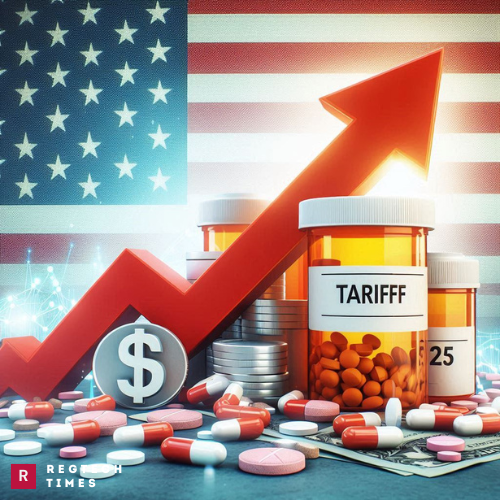A recent report has revealed some concerning news for U.S. consumers: a 25% tariff on imported pharmaceutical products could raise the annual cost of drugs in the United States by a staggering $51 billion. This would mean that U.S. drug prices could increase by as much as 12.9%, according to the analysis. These findings come at a time when the U.S. government is looking to investigate the effects of such tariffs, which would have a significant impact on the overall healthcare system.
The High Price of Pharmaceuticals
Pharmaceuticals, the medicines we rely on for everything from treating colds to managing serious conditions like cancer and diabetes, are largely imported into the United States. In 2023, the U.S. imported $203 billion worth of pharmaceutical products. A majority of these products came from European countries such as Ireland, Germany, and Switzerland. The United States, which has a large market for these products, sold $393 billion worth of finished pharmaceuticals in the same year.
Now, the threat of a 25% tariff on these imported drugs could lead to a massive increase in drug prices for Americans. The U.S. pharmaceutical trade group commissioned a report to look at the impact of these tariffs. The report, which was conducted by Ernst & Young, shows that if these tariffs are passed on to consumers, the prices of prescription drugs in the United States could jump by nearly 13%. This means that the U.S. could face a total of $51 billion in additional drug costs each year.
How Tariffs Could Affect Drug Prices
The analysis by Ernst & Young shows how a 25% tariff would impact the cost of pharmaceutical imports. The U.S. is currently heavily dependent on pharmaceutical products from other countries, particularly in Europe. These products include both finished drugs and ingredients used to make medicines in the U.S. Tariffs on these imported products would directly affect the cost of drugs in the U.S., making them more expensive for consumers.
Trump Set to Slash 145% China Tariffs in Historic Trade Shift – But Not to Zero
A key point in the report is that if these tariffs are fully passed on to consumers, drug prices could go up by 12.9%. This increase would be a heavy burden for many people who already struggle with the high costs of healthcare in the United States. Even though these tariffs are meant to encourage U.S. manufacturing, the immediate impact would be a sharp rise in drug prices, which could make essential medicines less affordable for people who need them the most.
While tariffs on imported finished drugs would immediately raise the prices that consumers pay, the impact of tariffs on ingredients is more complicated. Ingredients make up a large portion of pharmaceutical products. Ingredients for drug manufacturing accounted for 30% of pharmaceutical imports into the United States in 2023. The cost of making medications locally would increase by 4.1% if these materials were subject to a tariff. This could make U.S.-made drugs less competitive in global markets, reducing exports and potentially harming the American economy.
The Wider Impact of Tariffs
The report also points out that the pharmaceutical industry is not only a major supplier to U.S. consumers but also a significant exporter. In 2023, about 25% of the pharmaceutical products made in the United States were exported to other countries. If tariffs raise the cost of drugs in the U.S., it could hurt these export sales, making U.S. drugs less attractive to foreign buyers. This could affect the 490,000 jobs related to drug exports in the U.S., particularly those involved in manufacturing and sales.
Vietnam Seeks Trade Solutions as U.S. 46% Tariffs Approach
Additionally, the report highlights that retaliatory tariffs from other countries could further worsen the situation. If other nations decide to impose their own tariffs in response to the U.S. tariffs, it could create a vicious cycle of rising costs and reduced exports. This could damage the global competitiveness of U.S. pharmaceutical companies and hurt the American economy even more.
While the report does not go into detail about possible retaliation from other countries, it makes clear that the impact of tariffs on pharmaceutical imports would be substantial. As the U.S. government continues to look into this issue, it remains to be seen how much of this cost will be passed on to consumers and what the broader economic consequences will be. However, the report’s findings are clear: a 25% tariff would lead to a significant increase in drug costs for American consumers, making an already expensive healthcare system even more costly for those who rely on prescription medications.


